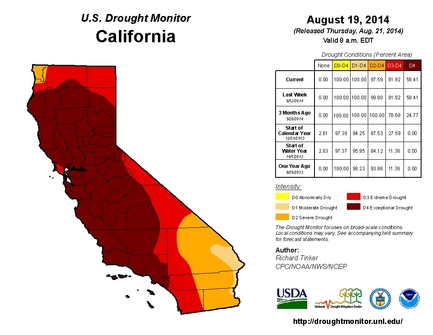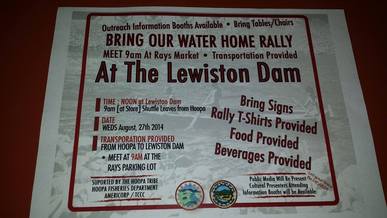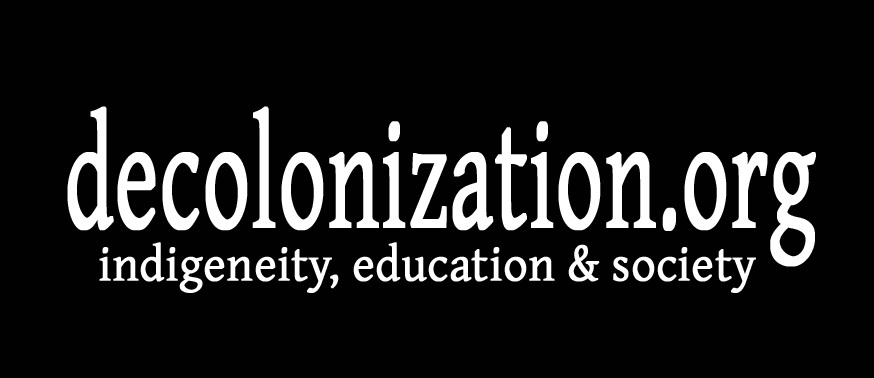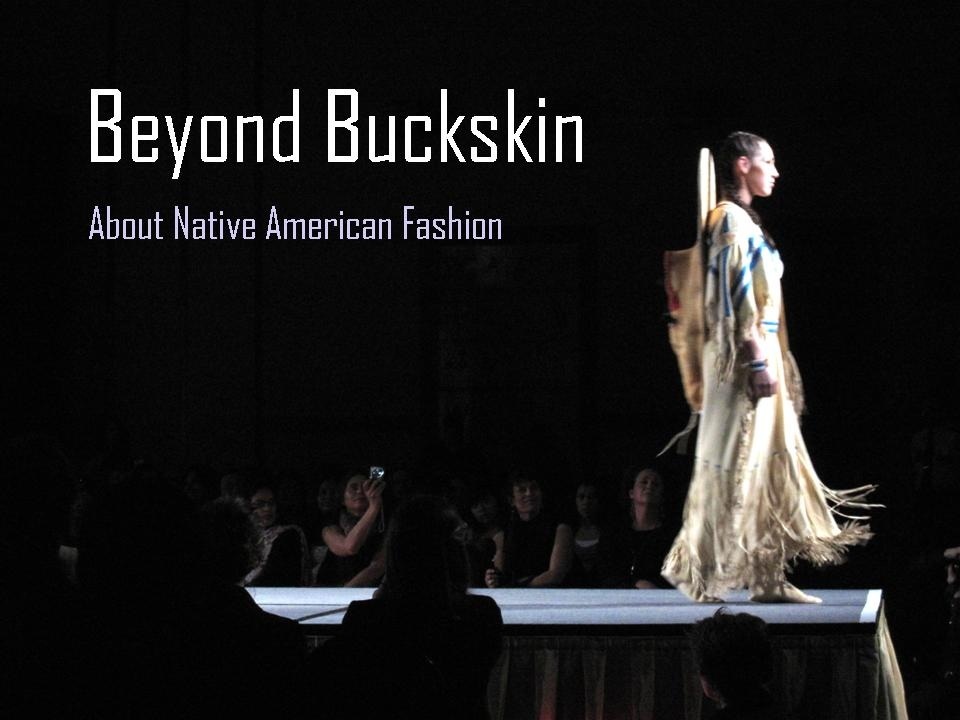|
Tomorrow I will be headed out on a road trip with my Auntie and my Baby Girl so that we can go sing at the Lewiston Dam in Shasta County for the water. Why? Why not? Why don’t we sing to water every day? I’ve been told (by some pretty reliable sources) that Hupa people are the “singiest, danciest people” you’re ever going to meet. We sing for everything. It wasn’t just ceremony and sacred calls to our K’ixinay to help us out… it was in thanks, in gratitude, in happiness, in sadness, to distress, to communicate, to love… to laugh. We’ve been inappropriate (in a hilarious funny exaggerated way) through song since Year 1. I have been doing a lot of research on singing for my dissertation (which is why I haven’t been blogging all that much) and have found a couple of pretty cool things. According to Time Magazine – Singing Changes Your Brain. And one study from Australia found that: …on average, choral singers rated their satisfaction with life higher than the public -- even when the actual problems faced by those singers were more substantial than those faced by the general public Also this one scientist found that water… yep H20 molecules, can be changed by prayer, song, and kind (or negative words): http://www.youtube.com/watch?v=k1-0ulKgmio The point is it's worth it. Especially now, as we fight for our water... but not just our water, ourselves, our communities, our lives. Yes it sounds a bit dramatic, but guess what -- Water is life. This is a saying that many of us Indigenous folks use as we talk about the importance of water to our communities. It’s powerful because it’s true. The human body is made of 60% water. If you don’t have water, you will die. Water is how we feed, nourish and regulate our bodies. Water is essential to our planet and our ecosystem and all of the living things in our world. It represents “life” as we explore other planets. Consider this: ..every organism we know of needs water to survive. In fact, without water, life on Earth would have never begun. Acting as a medium in which organic compounds could mix with one another, water facilitated the formation of the planet's first life forms, possibly even protecting them from the sun's radiation. Water is life. There’s a reason that Indigenous peoples throughout the world (Hupa included) prayed to, cared for and respected their water. We were in it for the long haul. We’d been here since the beginning of time and our water was clear, healthy, and full of life. We planned for it to be that way until the end of time. Even though we are up against states and corporations and governments and individuals who want to believe that water is about economy and gross national product, we will continue to fight for the water. It has been this way until the beginning of time... and so it will be. In Which I Attempt to Prepare Myself For Singing For The Water or On Water, Droughts, Senior Water Rights and the #ALSIceBucketChallenge Or Water, Water, Water, WATER People in California should be mad. They should be marching to the State Capitol and sitting on top of each and every dam wondering why we can spend money on commercials that tell average citizens “we are in a drought so we will fine you if you use water” but there are no commercials that explain some fundamental facts about WHO uses the most water in our state. (*Spoiler Alert* it’s agriculture) We are in a drought. The state of California is covered in red (which is bad, red is always bad) and our once green paradise of lusciousness is now a wanton desert. Help us, everyday citizen, to protect our state from sudden doom. Our “lack” of water is more than concerning, it is worth public shaming of individuals who water their lawns or have water based birthday parties or those who participate in #IceBucketChallenges (more on that later). You, good citizen, can do what needs to be done to help our state, but turning off your faucets, and taking shorter showers, and not watering your lawns. WE ALL must conserve. That’s what the rhetoric says. ALL OF US must do what we can to conserve water. Except – big business-- big, agricultural, business. In California, big business agriculture is often given first dibs to water. For instance according to this article from Slate, (and keep in mind, we are IN A DROUGHT) in our current situation: California as a whole diverts or pumps 43 million acre-feet of water each year to supplement its meager rainfall. In total, agriculture consumes 34 million acre-feet of that. (An acre-foot is just what it sounds like: the amount of water needed to cover an acre of flat ground up to a foot, or about 325,000 gallons of water.) ...In the middle of a drought, farmers are shipping fresh hay across the Pacific Ocean. The water that’s locked up in exported hay amounts to about 100 billion gallons per year—enough to supply 1 million families with drinking water for a year. What this means is that our water usage is skewed, skewed toward agricultural business in the central valley. Skewed for a number of reasons but SKEWED none the less. You can quickly become very unpopular in California when you start to question the ethics and necessity of the agricultural business model we have (seemingly) built our California economy on. Why agriculture? Why in the central valley where it takes so much energy and water to grow? What does it mean about our "long term planning" or our "sustainable future?" It doesn't bode well. But don't tell farmers that. Don't suggest that maybe they should find a different place to grow. Don't tell them that diverting rivers using dams and other mechanisms is dangerous, not just for other people (who have to contend diseased rivers and streams) but for other living beings (like fish and animals and domesticated pets). Don't tell them that we can no longer practice agriculture in a vacuum, like the diversion of one river doesn't some how affect every single other river we know, that our system of water can be forced into submission, that we are in control of it, and not that we rely on it and should be respectful of it. We are agriculture. It means jobs and economy and money. That's what the rhetoric says. We are agriculture. But why? Why agriculture? Why agriculture?The thing about agriculture is that at some point it got elevated to and associated with "civilization," and "modernity." According to "science" as societies "progressed" they moved through the following stages:
This is logical (so they said); this is the way that all societies move (so they wrote); this is how you show that you have "progressed" to civilization. Agriculture was a sign of a great society because... wait for it... it was something that western society was doing. In Red Earth, White Lies, Vine Deloria wrote that the entrenched belief that “all peoples began as primitives and inevitably moved toward Western forms of organization, which in turn were guaranteed by Western religion and philosophy” successfully created scholarship that was “laudatory of Western accomplishments” while “tribal peoples were given a marginal status as human beings” (65). When settlers got to California they saw no "agriculture" (as they thought it would look) and so they said "look at this vast, empty wilderness that is just waiting for us to grow stuff on." This erased Native peoples from the landscape, and created a modern mythology that Native people were “hunter-gatherers." (We hunted, and gathered... along with MANY OTHER THINGS that people do in ALL SOCIETIES.) California Indians were also often referred to in newspapers during the nineteenth century by the derogatory term “diggers” and were seen as having only basic knowledge of how to survive. James Rawls writes that: "There was a curious twist to the dispute in California, in that the European visitors argued that the superior natural environment of California had somehow created an inferior people. They argued that the abundance of wildlife and the temperate climate of the area had made life too easy for the California Indians." (Rawls, 32) This is why California Indians stayed "primitive" and never became "agriculturalists" because... they didn't have to. California already had everything it needed for people to thrive. But it wasn't just about having everything you needed, it was about "civilization" and "civilization" was "agriculture" or the forced domestication of plants and convenience growing. Now, this does not mean that Native people rejected and/or didn't understand agriculture. We had agriculture. It just didn't look like what we think of now. We grew tobacco (as it was an important plant to our religious lives and culture), we sometimes grew plants that we needed for medicine. We helped to prune, care for, and make plants healthier. We cut trees and we made use of plants for all the things people use plants for today - food, decoration, to make things smell better, as cures for ailments... seasoning. But... there were many other considerations that Native people made when designing how they lived WITH their world. Considerations that they had formed for (bare minimum) thousands upon thousands of years of knowing their space (since the beginning of time). For instance, there is an old story about how the Missionaries came to Southern California, looked around and said "Hey Indians, you are so primitive, we must teach you to grow corn like the other Indians who taught us to grow corn. We will conveniently forget to mention that they were the ones who taught us, because actually many of us starved and didn't know how to raise simple crops and things in this country until Indians taught us how, and instead we will try and make you grow corn like we do. Also you should be raising pigs around you, even though pigs often carry sickness. Geez Indians, don't you know anything?" And the Indians went "Actually, corn doesn't really grow well here in California and we like acorns and acorns are pretty plentiful and you can try to grow corn if you want to but you will be disappointed." I may be paraphrasing a bit... In the end they made the Indians grow the corn and there wasn't enough food because it didn't grow well and the Indians were like "we could walk outside and get you some acorns so you don't starve" but the Padres said that was "food for pigs." Starvation in the name of agriculture and civilization! What's the point? The point is that they built this city (this state) on agriculture. This was after they tried to build it on enslavement of Indians in missions (and agriculture) and genocide of Indians and gold (and agriculture) and taking of Indian land (for agriculture) and removal of Indians from their land (in the hopes of using it for natural resources and probably... agriculture) and then trying to force Indians to use their land for...you guessed it... agriculture. Ideas about the promise of agriculture run deep in western culture because it defines who they are as a civilization. Food is important to any group of people - we must eat to live. And yet western settlers were suddenly (in many different times and in many different ways) thrown into a strange territory by which they had heard many rumors and stories and mythologies but that they could not really fathom. They were afraid of starving. Going out into this scary world to find food and other sources of nutrients is SCARY.... making it grow right next to your house is... agriculture. In seeing California people saw a land of "prosperity" and "promise." And for a long time (and still today) agriculture was prosperity--- and promise. And conceiving of agriculture in any different way, having conversations about how to build a system that works with the ecosystem, considering sustainability and responsibility was "primitive." So what does this mean?Well, right now it means that we are in a drought and looking around trying to figure out how we can address this problem. There is a lot of talk about lawsuits and restraining orders. And there is just a murmuring that perhaps -- it will mean we finally have to reconstitute and reconsider how California is organized. In fact, according to some articles, it may mean for the rest of the country that everyone has to start reconsidering how we eat or where we get our food from. It also means that Native people have to stand up and be heard, constantly, to remind people of some well known facts like... Water is life. And we are all in this together. Right now as we struggle to keep our rivers healthy (while water is being held... for other uses) we are faced with the fact that our water, the very vein that runs through our valley and protects all sorts of life (human, environment, plants etc.) may be toxic. Blue Green algae has been found in our rivers. And the advice we have been given includes: Keep children and pets away from the water; do not drink, cook or wash dishes with the water, and to get medical attention immediately if we feel we have been exposed. This is not a third world country we are talking about. Yes, people in the past have compared Native reservations to "third world countries" but our home... has been "Our Home Forever." There are many socio-economic issues that we face every day, head on. These water issues no longer belong to some "far off land" where YES there are serious issues with access to water and water sanitation. No one wants to diminish the importance of one water crisis for another. But here, in California (which has the highest GDP in the United States at 1.9 trillion dollars) we have communities with no water. Their water is being bussed in to them and they are being told that this is only for a few weeks and after that they should ask for donations or something. And up here in Nor Cal we contend with possibly toxic water, to fish, to animals, to people, to our ecosystem. We need to hold all of our "citizens" (corporations included, because the Supreme Court says they are people now...) to standards that support the life of our ecosystem, lands, living beings, and peoples. We cannot depend on our individual good intentions as citizens who "conserve" to somehow out weigh and make up for the use of water to support industry. We have to demand ethics and responsibility of our industries. We have to stand up and be heard. Which is why... Na:ke:ah-te (I am going to sing) So tomorrow there's going to be a bunch of Native people gathering at the Lewiston Dam in Northern California to rally for the water. Just last week we rallied to ask the Bureau of Reclamation to #ReleaseTheDamWater and prevent a fish kill. At the time current conditions in our river were worse than they had ever been. In 2002 we experienced a massive fish kill of thousands upon thousands of salmon. We didn't want to see it happen again. After a lot of negotiation and letters, phone calls and tweets the BOR agreed to #ReleaseTheDamWater. And they did. It was immediately after that though that water districts filed a restraining order against the BOR. (Even though the water was already released... it's mostly to prove their point which is something like "that's not fair! We want water for our industries!") So tomorrow we rally. I will be singing with a group of powerful, strong women who will stand with me to be heard. We will encourage people to sing with us. You can sing to if you like... wherever you are. And tweet. I'll be using the hashtag #ForTheWater Tell everyone what you are doing #ForTheWater Tell big business what they should do #ForTheWater Also, we should all no longer buy almonds...I'm sorry. I know the almond industry is booming. Just a few months ago I wrote about how "in" to almonds I was. They had gotten me. I didn't put all of it together until I did... This article points out that: California almonds use a stunning 1.1 trillion gallons of water each year, or enough for you to take a 10-minute shower each day for 86 million years (using a low-flow showerhead, of course). ... In 2013, there were 940,000 acres of almonds in California, according to the USDA (PDF). Each acre of almonds uses three to four acre-feet of water each year, most of which are delivered via river diversions or groundwater. You know what's better for California than the almond industry? Undaming the Klamath river and supporting the revitalization of the Klamath River basin. Case in point: A controversial U.S. Geological Survey Report was leaked to the press concluding that far more economic benefits were to be had in the Basin by restoring water for fish habitats and recreation than diverting water to agriculture. This report claimed that the $5 billion dollars in restoration necessary would be easily offset by $36 billion in benefits from recreational activities compared to $239 million at most in total agricultural production in the basin. Tell everyone you know that you are no longer supporting the almond industry until they actively participate in securing our water for the future. This may mean losing an almond crop, or two, or relocating, or changing their water use but they have to do something. #NoMoreAlmondsCA PSI"m not doing the #ALSIceBucketChallenge and to be quite honest I haven't even watched one. I see them on my Facebook feed and various reports of famous people here and there, but I have had no desire to click play. It is partly because as I was standing on the edge of a shrinking, sick Trinity River in the Hoopa Valley praying for water... I started to think that feeling a cold splash of ice water on my head would only remind me of how warm the river was. Second, many Native people I know already did the #IndigenousWaterRightsChallenge where some of them actually jumped in to freezing ice water and others into freezing creeks. It was winter. I jumped into a river. Yes, throwing ice water on your head is "challenging" but I felt a little been there, done that. Something to think about...
This whole phenomenon, however, has made me wish I had challenged a lot more famous people to go jump in a lake. Because I guess... when famous people do it... e'erbody gonna write about it on news sites. Now to tweet famous people #NoMoreAlmondsCA. We'll see how that goes...
2 Comments
Allie
8/28/2014 12:08:54 pm
Couldn't have said it any better! I love you're style.
Reply
Cutcha
8/28/2014 03:08:39 pm
Thanks Allie!
Reply
Your comment will be posted after it is approved.
Leave a Reply. |
SubscribeClick to
AuthorCutcha Risling Baldy is an Associate Professor and Department Chair of Native American Studies at Humboldt State University. She received her PhD in Native American Studies from the University of California, Davis. She is also a writer, mother, volunteer Executive Director for the Native Women's Collective and is currently re-watching My Name is Earl... (5) Top PostsOn telling Native people to just "get over it" or why I teach about the Walking Dead in my Native Studies classes... *Spoiler Alert!*
Hokay -- In which I lead a presentation on what happens when you Google "Native American Women" and critically analyze the images or "Hupas be like dang where'd you get that dentalium cape girl? Showing off all your money! PS: Suck it Victorias Secret"
In which we establish that there was a genocide against Native Americans, yes there was, it was genocide, yes or this is why I teach Native Studies part 3 million
5 Reasons I Wear "Indian" Jewelry or Hupas...we been bling-blingin' since Year 1
Pope Francis decides to make Father Junipero Serra a saint or In Which I Tell Pope Francis he needs to take a Native Studies class like stat
I need to read more Native blogs!A few that I read...
Archives
June 2020
Categories
All
|






 RSS Feed
RSS Feed
